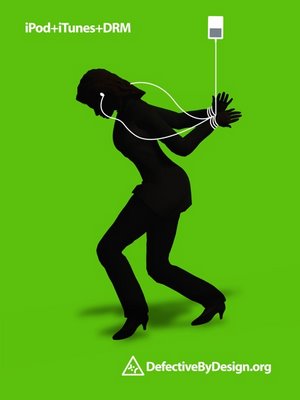Apple is not the real enemy of open source


Not Apple Inc. The copyright industries.
Music companies. Movie companies. TV companies. Radio companies. Book companies. Magazine companies. Newspaper companies. (Often, now, the same company.)
Media has feared the Web since the day it was spun. The DMCA and No Electronic Theft Act were aimed at the Internet.
Turned out they were aimed at open source as well. Open source is a child of the Internet.
The copyright industries have demanded for a decade that before their content is released it must carry a Digital Rights Management (DRM) scheme. The other media treat this as a given, as obvious, as a necessity.
Of course it's nothing of the sort. The success of Apple's iTunes proved that the insistance on a DRM was counter-productive. Rather than assuring that people pay for each song, clip or pageview, it cemented Apple's control of the music channel.
Despite a rush away from DRM by the music industry, it's too late. Meanwhile, the video industries are demanding the same treatment. So you have Viacom's suit against Google and the MPAA's attempts to bankrupt BitTorrent users.
This has split the community. FOSS advocates refuse to accept the need for DRMs, so media won't play on FOSS boxes. Open source companies give in reluctantly. The result is that Linux is a virtual content-free zone.
This is changing, slowly, but now resistance comes from the Linux user side of the divide. Many Linux users obey the FOSS imperative and resist DRMs. Right or wrong is not the question here. It's just the reality.
Apple has used that reality to its advantage.
Apple embraces DRMs, and any other restrictions the copyright industries want. This is at the heart of its power. Its alliance with the copyright industries has brought Apple from the brink of irrelevance to dominance of the handheld Internet and gadget markets in this decade.
But don't forget who gave Apple that power. If the battle with Apple is open source's Vietnam, just remember it's the copyright industries who began this Cold War.